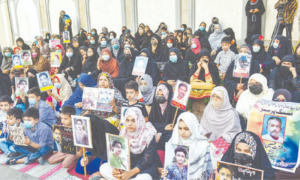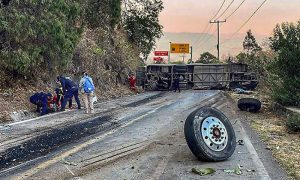Vulnerability of Pakistan to climate changes is extra-ordinarily alarming. According to country report uploaded on the United Nations website HABITAT, Pakistan ranked the 5th most vulnerable country to climate changes. Global Climate Risk Index predicted that harsher whether shifts in Pakistan continue to pose sever threats to human life, agrarian activities, livestock and infrastructures.
During recent past years, weather patterns have been in constant flux. Delayed winters, extreme heat waves and unpredictable or irregular monsoon rainfalls are the main reasons behind climatic chaos. In an agrarian country like Pakistan, poverty alleviation cannot be ensured without providing suitable environment to the farmers.
Modernization of agriculture and access of farmers’ community to the latest technology is an unavoidable pre-requisite for upward revival of national agriculture. It is not only that quality of life depends largely on the stability of agricultural activities, but national food security is also reliant on country’s least dependence on imported stuff. In the midst of brewing polycrisis, Pakistan suffered on many accounts for not paying due attention on implementation of much needed reforms in many fields and climate changes are no exception to this tendency.
Devastating floods in 2022, came as a hard-hitting outcome of prolonged inaction on evolving climate crisis. Serious inability to handle the flash floods took a great toll in terms of unbearable damages to communication infrastructure, Agriculture fields and living areas in rural as well as urban centers.
Reduced snowfall in recent winters were a direct below to the glacial reserves which actually serve as the main source for irrigation activities down the stream. Gradually rising temperatures in northern areas have led to the quick melting of glaciers in an early time frame. This issue was analyzed in an article titled ‘Snowless Winters: Gathering Storm of Climate Challenge” published on this platform on 29 January 2024.
Extended snowless winters combined with early melting of snow reserves pose greater threat to agrarian activities. Climate inaction laced with unawareness is worsening with every passing day. Latest warning from Indus River System Authority (IRSA) is about 30% assessed water shortage during upcoming Kharif cultivation season. This quantum of shortage is a huge gap for agricultural country and a deep dent to already struggling economy of Pakistan.
Decline in agricultural output would definitely cause further devastation in domestic economy thus putting more burden of imports and disturbing the balance of payments. While averting the looming default with a narrow margin , this dip in agricultural yields would be another hurdle on the road of economic revival of Pakistan. Though, IRSA is quite hopeful that monsoon rainfalls would level up the water scarcity in coming days but this issue needs deliberate planning to avert the unaffordable catastrophe in future.
Two aspects related to current water shortage merit befitting responses at different tiers. According to IRSA, presently two major reservoirs Tarbela and Mangla dams are not operationally ready to discharge the water. Operational handicaps or discharge dysfunctionality of the water reservoirs can be fixed or improved with better professional handling. Matter can be thoroughly investigated by involving the expert professionals to find a long-term solution of such operational constraints. However, the issue of water scarcity perpetuating due to rapidly emerging climate changes is more serious in nature. It merits a wholesome response in the form of multi-directional long term policy reforms.
Global Water Security Assessment report released by UN categorized Pakistan among the most water stressed countries of the world. In these countries per capita water availability is sharply declining primarily due to growing population and harshly changing environmental factors. It is evident that water shortage induced by the population bulge and climate changes are going to hurt the country more devastatingly in future. No quick fixes other than policy reforms will be effective in averting the multi-dimensional crisis.
Experts believe that Pakistan can overcome the crisis with firm resolve and well thought out plans. Efficient management of water resources and construction of more water storage facilities should be pursued on war footing to move the agricultural activities at satisfactory pace. It is assessed that 97% of fresh water is currently wasted due to lack of appropriate storage facilities and outdated irrigational practices in agricultural fields. Adoption of modern irrigation techniques is another equally important step which should be pursued through agricultural experts to contain the wastage of fresh water. Ironically, undesired interplay of politics and economics have kept the decision makers largely deviated from the right policy course.
Pakistan cannot afford further negligence. Holistic policy reforms are needed to tackle the serious challenges posed by rapidly emerging climate changes. Water scarcity is surely the one which merits top priority in our national action list.























